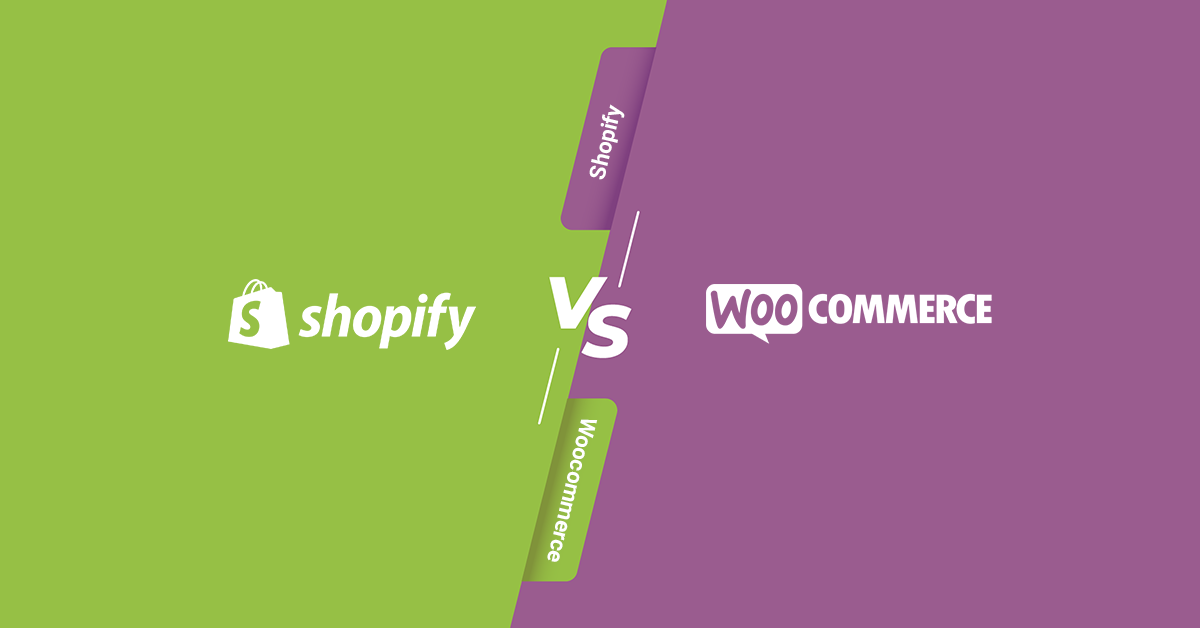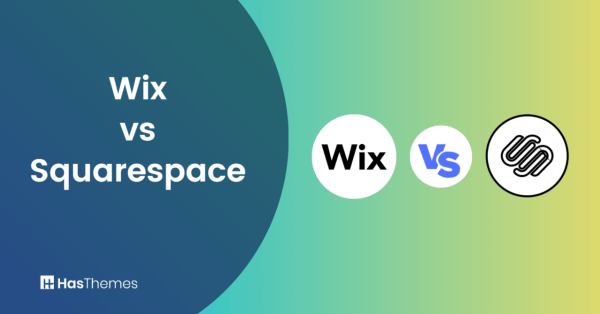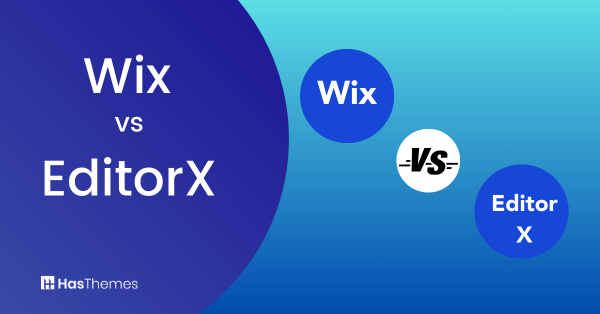
Shopify vs Woocommerce: Which eCommerce Platform is Better now in 2024?
If you are planning to launch a handy eCommerce website, you are probably the man in front of the two roads Shopify vs Woocommerce. Yes, there are lot more options for you but these two are the most convenient and super-easy content management systems (CMS) for eCommerce websites. I will denote a step-by-step autopsy of this contradiction and it will rescue you from the maze. Before diving into the deep, let’s brief Shopify and Woocommerce.
Table of Contents:
- What is Shopify
- What is WooCommerce?
- Pricing
- Build Time
- Ease of Set UP
- Security and Transaction Safety
- Adaptability
- Live Support
- Comfort in Dropshipping
- SEO Performance
- Mobile Friendliness
- Content Management System
- Email Marketing
- Themes and Templates
- Plugins / Apps
What is Shopify?
Shopify is a brilliant eCommerce platform and a powerful Content Management system (CMS). It’s a complete package of online store management, inventory management, easy payment gateways. No technical aspects of website development and management and even zero-programming skills are required to build an eCommerce store in Shopify platform. Shopify store allows a fourteen days trial version where you can polish your Shopify skills and can make your store ready with all the primary requirements.
What is WooCommerce?
WooCommerce is one of the handiest open-source software that you can use with WordPress. It’s a customizable plug-in that comes with a basket of built-in tools.
WoCommerce is specialized for an online store or shop management. However, all the flexibility and customization are possible here. You can install free or premium themes on your WooCommerce site. You can visit Hasthemes, (Hasthemes Free themes directory Link), Themeforest, Templatemoster etc.
Now, let me break down the pros and cons of Shopify vs WooCommerce. But, in the end, the choice is yours.
Pricing:

Pricing is a key point while choosing any service or product. Shopify offers a 14 days trial version and later on, you have to pay according to the below the price chart. Well, it’s interesting that Shopify has defined multiple plans for the business owners. Starting from $29 per month there is a package of $299 per month. https://prnt.sc/110sbkj
However, all the above packages offer hosting, domain name, and SSL certificate for free. Apart from those, in the basic plans, you can add unlimited products, unlimited file storage, two user accounts, and everything that you may need to operate the website.
Though the basic is constant, your expenditure on the website will not remain the same in the future. As your business grows, there will be more transactions, shipping and storage needed. Then your budget has to be far bigger than it starts with.
You probably know that Shopify has its own payment system. It ensures that you don’t have to depend on 3rd party payment solutions. Third-party payment solutions will charge above 2% in all transactions.
On the other hand in Shopify transaction system, you can minimize the cost even to 0.5% if you use the advance plan of $299 per month.
Now, let’s take look at the pricing plans of WooCommerce. WooCommerce is a free plug-in of WordPress. But once you start using this, you will find various additional charges for different services. Domain name, WP hosting and SSL certificate are premium in WooCommerce. Around $15 for a domain, $70 for SSL certificate, and $8 for hosting are primarily required in WooCommerce.
Though you can start your WooCommerce store at a cheaper rate than Shopify’s, you shouldn’t close the book of expenditure right now. You have to spend more on buying plug-ins and other paid extensions. Don’t get panicked. There are numerous free tools and extensions. It’s possible to enhance your website with free tools.
Build Time:
Building a website and making it live is not an easy task. Whatever you chose it will take some potential hours. Still, if Shopify and WooCommerce are compared, Shopify will take fewer hours than it takes in WooCommerce. In Shopify you may find built-in sections, ready to be assembled. Here, things are not as manual as WooCommerce. From the given demos, you can build excellent Stores. Even you can integrate other free or premium themes with just drag and drops whereas WooCommerce building will require little patience.
🚀 Ready to skyrocket your Shopify store to success?
🚀 Unlock the secrets to success and boost your sales 📈 with ShopiBuffet’s expert services. Don’t miss out, get started now!
Ease of Set UP:
A completely hosted platform, Shopify is super-easy to set up. As soon as you create the account you may find easy to pick fields and tools to add different elements to your website. Just drag and drop is the key here and no coding skill is needed to animate your website.
The built-in tools and options are almost enough to build a handy website, still, there are shortcomings of Shopify. Someone would say, you can’t diversify the choices and design. However, don’t worry about it. Tons of readymade themes and extensions are available on the internet. Both free and premium themes are available.
In addition, since Shopify is a hosted platform, you have no headache about security, backups, and performance.
On the other hand, WooCommerce is a plugin in a self-hosted website. Security, updates, and backups are on your shoulder.
WooCommerce is massively flexible in terms of customization. There are around 50k plug-in’s on the internet. Using free or premium plug-ins you can add any functionality in your website. HT Plugins, ***,*** could be some excellent solutions for you.
You can check the basic video tutorials for Shopify on YouTube
Security and transaction Safety:
Ecommerce has reached such a height that both the customers and sellers are performing the whole process in online. Millions of transactions are happening through the internet every day. In this respect, ensuring flawless security to the clients is the first and foremost responsibility of a businessman.
In terms of security, both WooCommerce and Shopify have enough capacity. But, the author of the website has to be handy in using the safety protocols. If we scrutiny these two, I would say Shopify has got some competitive advantage here. Shopify bears some built-in SSL security tools whereas the WooCommerce users need to integrate some external SSL certificates.
Shopify authority takes almost every responsibility of the security of the site. You only have to create strong passwords, maintain basic safety protocols, systems and browsers updated and backups of the files.
In WooCommerce, you may have to hire a developer or security expert. Though WooCommerce security is not that vulnerable, the ultimate responsibility is up to the end-user.
Adaptability:
You can’t only consider the present advantages while choosing the platform for your eCommerce site. Which may bring some competitive edges would be a key point while choosing the platform. In terms of future adaptability, Shopify may gain the race. Once you launch a Shopify store, all the technical responsibilities are taken by Shopify itself. You just have to upgrade the Shopify plan to cop up with the demand. Shopify will manage all other security, updates, and backups. It means you will be released from the growth pain which is a headache for the CEO’s. Even, this will help you minimize the cost since you don’t have to hire a technical team for your website. Being a self-hosted website, WooCommerce has limitations in scalability. Once your business grows and traffic manifolds, hosing capacity will run out. Then the hosting and other upgrading task or their expenses will pinch you.
However, there are hassle-free solutions. WP Engines, Liquid Webs, and multiple hosting solutions are there that have affordable solutions for WooCommerce hosting.
Live Support:
Whenever you are using any premium service, you may simply expect long-term support from the service provider.
Shopify platform has full-loaded resources and skill teams for their clients. Since it’s a hosted platform, they are the best who can solve any issue raised in their website. Shopify team is available in round the clock live chat, email, phone call and there are forums where you can get excellent solutions of the problems in your website.
Besides, Shopify provides its clients with extensive documentation and video tutorials. Though Shopify doesn’t provide any help related to third-party apps or tools, it has a directory of expert teams who can provide premium services to solve any special help in your Shopify website.
WooCommerce is also quite rich in terms of support. It also provides descriptive documentation, videos, and other guidelines to the clients.
WooCommerce takes the responsibility to assist its users in any case raised with the main WooCommerce website or the external tools integrated with the site.
Comfort in Dropshipping:
Dropshipping is a modern idea of sales where one can sell products of other vendors from his/her own website. For example, you have an online shop where the visitors will find all the options from product finding to purchasing and making payment. Finally, the order is automatically transferred to the mother vendors and they will deliver the product.
Shopify and WooCommerce, both have almost same extent of ability and expertise to operate a dropshipping business. Any of these two can be a massive choice for a dropshipping business. You can showcase the products as the other eCommerce websites. Visitors can search products, categories can add to cart, make payment in your website.
Both of these platforms have their own extensions to integrate renowned vendors.
Grow Your eCommerce Business with Valuable Resources, Tools, and Lead Magnets
- Bring your ideas to life for $1/month
- One platform that lets you sell wherever your customers are—online
- Create a beautiful eCommerce website
- Start for free, then enjoy $1/month for 3 months
- Build your own website in a few steps
- Create a website in minutes easily, secure method
- Turn what you love into what you sell
- Discover the Shopify Point of Sale
- AI Based Business Name Generator
SEO Performance:
SEO is a critically important aspect of a website. Everything being very polished and advanced in functionalities but poor in SEO scale, will bring a big zero for your business. Let’s scrutiny the SEO performance of these two platforms.
Shopify has something to give you in SEO. It’s coded by highly skilled engineers and they know how to make it suitable for SEO.
In addition, there are advanced analytics options in Shopify so that you can get top-notch insights from your website traffic. It’s impossible to get a better result in SEO without better analysis. There are numerous marketing tools that you can integrate to your Shopify site.
Email marketing, social media analysis, product review and product share options are available to increase SEO results. You can create gift vouchers and discount codes to attract more people to your site. If you are a bit advance in digital marketing, it’s a piece of cake for you to bring splendid SEO results.
If I tell you in one sentence about WooCommerce SEO, I would say yes, it is SEO friendly. But, it’s not built in the ready way how Shopify is. However, WooCommerce is also built with SEO-optimized code. If we compare these two’s performance in static content SEO, WooCommerce may beat Shopify. WooCommerce creates a clean URL which is a key factor in ranking.
Besides, there are extremely fertile SEO plugins. For example, All In One SEO can give you a feel like SEO is just a play.
Mobile Friendliness:
In recent years, the ratio of the mobile user has increased proportionately. It’s’ impossible to omit mobile users and win in eCommerce. Fortunately both of the platforms, we are talking about, have mobile-friendly layouts.
All the default themes and the sections which you can add in your Shopify store are perfectly mobile optimized. You won’t have to bear any headache of responsiveness in the Android or iPhone app.WooCommerce also doesn’t fail in this race. Visitors can easily navigate, find products, purchase and finally make payments with mobile devices.
Content Management System:
Content management system is actually the main task of these website platforms. In this respect, WooCommerce beats Shopify for sure.
WooCommerce has the options of Content Versioning. It means you can preserve every version of a webpage or content in the system. Interestingly, you can roll back to the previous or any other version at any time.

But, on the other hand, this function is unavailable in Shopify. In addition, in WooCommerce you may find Gutenberg built-in drag and drop editor which is more flexible in content management.
However, ‘Automated Collections’ in Shopify is quite a big weapon for online stores. You may set rules to extract products and create collections. You won’t find this fast method of sorting the collections. Using this option you can save more hours than you can in WordPress.
Email Marketing:
Email marketing has been a tremendous way of marketing your products and services online. Shopify has introduced a nice and simple way of email marketing from the store site directly. This built-in email marketing tool can disburse 2500 emails for no cost. If you need more, you have to budget $1 for every 1000 emails.
On the contrary, WooCommerce has no such built-in email marketing option. Nothing to be worried about because there are number of plug-ins to perform email marketing tasks.
Themes or Templates
In respect of themes and templates, both Shopify and Woocommerce have rich collection of themes out there.
Shopify itself brings around 70 built-in themes for their clients.
In addition some extremely professional and creative people are there who have designed thousands of amazing themes for you.
While integrating the plugins Shopify is massively comfortable and easy-going with the plugins. To find out creative shopify thems you can visit Hasthemes and Envato Studio etc.
WooCommerce theme store is also rich. You can use any WooCommerce theme with other WordPress sites at the same time. Numerous professional themes are available in the internet- specially in Hasthemes and Envato Studio etc.
🚀Boost Your Online Store Sales with Mavon Shopify Theme!
Mavon – Your ticket to success! 🚀 Boost revenue with conversion-focused features and intuitive design, turning visitors into loyal customers.
Plugins or Apps for Shopify vs Woocommerce:
Plugins or Apps are amazing things to build and regularly update your website whether it is WooCommerce or Shopify.
WooCommerce apps and plugin store is more resourceful than Shopify’s. More than 10,000 handy plugins are available in the market. To find best quality plugins you can visit Themeforest , Hasthemes , Templatemonster . To make it easier for you I would recommend you to click on Woolentor to bring your WooCommerce skill one step ahead.
In addition, WooCommerce has creative and masterclass mobile apps. Overall customer rating for WooCommerce mobile app is 9.3 and the user satisfaction is 97%.
On the other hand, Shopify apps and plugin store has around 1200 collections in different store. Yes, these are more than enough to build anything in a Shopify store site. Even being a non-professional Shopify store builder, you can create anything you wish in your website.
Besides, Shopify also has complete apps that customers are using with 100% satisfaction. Overall rating for Shopify apps is 8.8.
I would say, both WooCommerce and Shopify are dependable in respect of plugins and apps.
Watch the video about Shopify vs Woocommerce: Which eCommerce Platform is Better now in 2024?
Conclusion:
The above discussion is from my point of view. Things ultimately depend on the user. You should consider your needs and purpose of launching the website while taking the final decision. However, there might have a different point of view on the points I have denoted. Nothing is concrete in such kind of renowned technologies.
Millions of people are keeping their trust in both of these platforms. So, take a deep breath and kick the ball upon your own directives. Thanks for reading.






